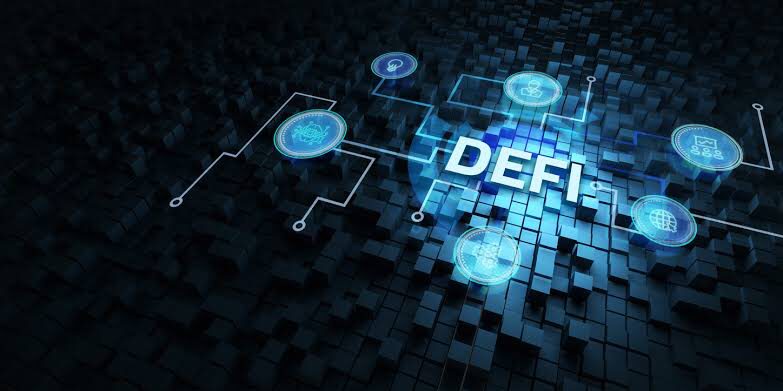Decentralised finance (DeFi) is one of the new internet buzzwords being thrown around but only a few really understand what it truly means and its implications on the global financial system.
The term was coined in 2018 by a group of entrepreneurs and Ethereum developers who wanted to open up finance applications from traditional systems.
Simply put, Decentralised Finance is an emerging financial technology based on secure distributed ledgers (the technology that tracks all transactions on a given financial platform), similar to those used by cryptocurrencies.
Basically, the system removes the controlling power that banks and institutions have over money, financial products and financial services.
Think of this scenario, instead of having your bank or debit card issuer be the intermediary between you and a vendor when you make a purchase, you use digital currencies like bitcoin and Ethereum and have ownership to use them directly.
How DeFi works
DeFi uses Smart Contracts and cryptocurrencies to provide financial services to eliminate the need for intermediaries, like guarantors.


Those services include lending – users can lend out their cryptocurrency and earn interest, receive loans, make peer-to-peer trades without a broker, save cryptocurrency and earn better interest rates than traditional banks offer.
Decentralised Finance users utilise Decentralised Apps (DApps) to facilitate business transactions. Some of the widely used services and dApps are cryptocurrencies (Ether, Polkadot, Solana), stablecoins, digital wallets, liquidity mining, staking, yield farming and so on.
Benefits of the DeFi
As more DApps continue to come into the system, the possibilities of DeFi continue to grow. A predominant benefit includes sending money anywhere in the world (fastly and with little fees).
Also, with the help of Decentralised Finance, users can store money using crypto wallets and earn higher yields than what is obtainable at traditional banks. They can also borrow/lend on a peer-to-peer level, trade cryptocurrencies anonymously and trade tokenised versions of investments such as stocks, funds and non-fungible tokens (NFTs).
Overall, the benefits include lower costs, greater types of services and the ability to earn higher income through crypto holdings.
Downsides of the DeFi
Like other emerging financial systems, DeFi has its drawbacks, especially as it’s a new technology that aims to disrupt an established institution such as the centralised banks.
Participating isn’t as simple as going down to a local bank. DeFi can be a challenge for beginners to navigate because of the massive amount of DeFi applications and investment opportunities in the space.
Also, the process can be confusing. Because, to access the world of DeFi, you will have to move currencies from centralised exchanges like Binance into a noncustodial wallet like Trust Wallet and MetaMask. The whole process requires knowledge and care in order not to make a mistake.
The most consequential among the downsides is the issue of theft and scams. According to blockchain analytics firm Chainalysis in May 2022, out of the $1.7 billion worth of cryptocurrency stolen as of then, 97% of it came from DeFi protocols.


In those DeFi scams, developers create cryptocurrency projects before stealing investor money and disappearing. Chainalysis warned that many attacks on DeFi exchanges over the past year can be traced back to errors in the smart contract code governing those protocols, which hackers exploit to steal funds.
Also, plenty of fraudsters snare new and naive crypto investors with unreal yields that drastically outpace those on offer at traditional financial institutions.
Bottomline
DeFi is an expansive financial ecosystem that strives to take out the middleman and allow for financial transactions between users.
Its proponents and believers claim it is the beginning of a revolution that enables people from all walks of life to participate in financial transactions that were otherwise unavailable to them. Critics and opponents believe Bitcoin, Ethereum, NFTs and all other blockchain-based assets are merely a fad that will fade into oblivion with time.
At the moment, there is so much hype around the concept. For newbies that want to get started, it is important to understand not only the rewards but also the risks before getting started.
Although the yields offered by DeFi are enticing, take cognisance of scams and thefts.






